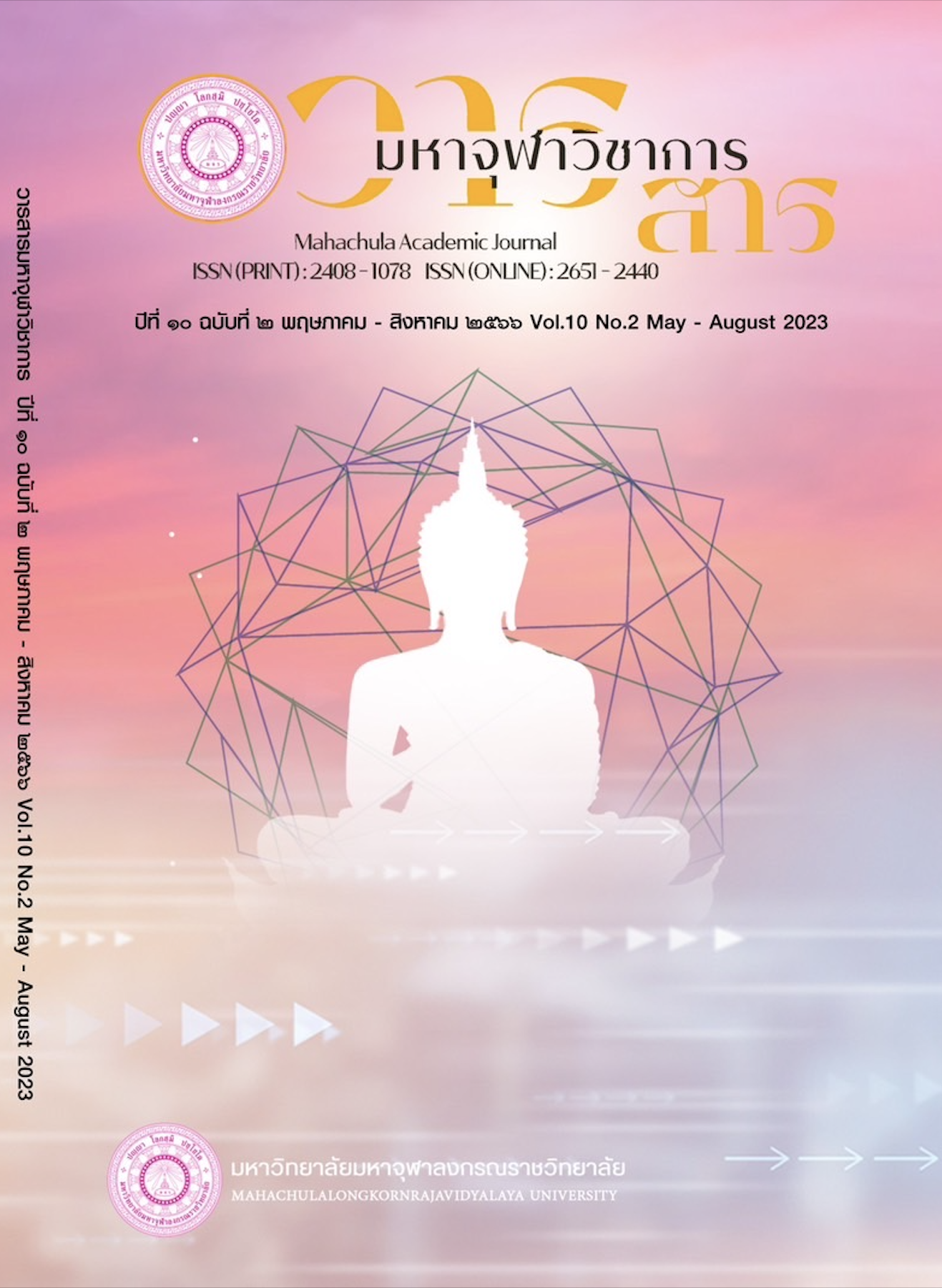The Effect of Health Education Learning Management Using Phenomenon Based Learning with R-C-A Questioning Techniques on Sexual Risk Behaviors of Grade 6 Students
Main Article Content
Abstract
The objectives of the study were (1) to study of health education learning management using Phenomenon Based learning with R-C-A questioning techniques on sexual risk behaviors. (2) to compare the achievement of health education learning management using Phenomenon Based learning with R-C-A questioning techniques on sexual risk behaviors between on-site and online learning of grade 6 students. The sample of study were drawn from 2 classes of grade 6 students Prasarnmit Demonstration School (Elementary) during the academic year 2022, using Purposive sampling method. The experiment group 1 were grade 6/4 students and experiment group 2 were grade 6 online learning students. The research materials were lesson plan and sexual risk behaviors test. The statistics employed were t-test Dependent and t-test independent in Difference Score.
Findings are as follows: (1) The grade 6 both on-site and online learning students who learn with Phenomenon Based learning with R-C-A questioning techniques get higher score in sexual risk behaviors than the score before learning that was statically significant difference at level of .05 (2) The grade 6 on-site students get higher score in sexual risk behaviors after learning than grade 6 online students that was statically significant difference at level of .05.
Article Details

This work is licensed under a Creative Commons Attribution-NonCommercial-NoDerivatives 4.0 International License.
References
เพชรรัตน์ จงนิมิตรสถาพร. “เทคนิคคำถาม R-C-A กับการพัฒนาทักษะชีวิต”. วารสารศึกษาศาสตร์ มหาวิทยาลัยขอนแก่น. ปีที่ ๓๖ ฉบับที่ ๒ (กรกฏาคม-ธันวาคม ๒๕๕๖) : ๒.
มาลี สบายยิ่ง. “พฤติกรรมเสี่ยงทางเพศของนักเรียนชั้นมัธยมศึกษาตอนปลายในสังคมปัจจุบัน”. วารสารวิทยบริการ มหาวิทยาลัยลงขลานครินทร์. ปีที่ ๓๐ ฉบับที่ ๓ (กันยายน-ธันวาคม ๒๕๖๒) : ๑๒๑-๑๒๗.
ละมัย แก้วสวรรค์. “ผลการจัดกิจกรรมการเรียนรู้ตามแนวคิดคอนสตรัคติวิสต์ที่มีต่อผลสัมฤทธิ์ทางการเรียนและความคิดสร้างสรรค์ทางคณิตศาสตร์ของนักเรียนชั้นประถมศึกษาปีที่ ๖”. ปริญญาการศึกษามหาบัณฑิต. มหาวิทยาลัยศรีนครินทรวิโรฒ, ๒๕๕๘.
ศรัณยา สงวนวงศ์. “ประสิทธิภาพของการเรียนออนไลน์ในยุคโควิด ๑๙ ของนักเรียนชั้นมัธยมศึกษาในเขตพื้นที่กรุงเทพมหานคร”. วิทยานิพนธ์ปริญญาการศึกษามหาบัณฑิต. มหาวิทยาลัยรามคำแหง, ๒๕๖๔.
สำนักงานสถิติแห่งชาติ. รายงานการสำรวจการมีการใช้เทคโนโลยีสารสนเทศและการสื่อสารในครัวเรือน พ.ศ. ๒๕๖๔. กรุงเทพมหานคร: สำนักงานสถิติแห่งชาติ, ๒๕๖๔.
สำนักงานอนามัยเจริญพันธ์. รายงานเฝ้าระวังการตั้งครรภ์แม่วัยรุ่น พ.ศ. ๒๕๖๔. กรุงเทพมหานคร: กรมอนามัย, ๒๕๖๔.
Elham Hussein. “Exploring undergraduate students’ attitudes towards emergency online learning during COVID-19: A case from the UAE”. Children and Youth Services Review. Vol. 119 No. 21(2020) : 1-7.
กระทรวงศึกษาธิการ. “โรงเรียนหยุด ความรู้ไม่หยุด”. [ออนไลน์]. แหล่งที่มา: https://www.moe.go.th/ศธ-ยืนหนึ่งเรียนออนไลน์/ [๘ สิงหาคม ๒๕๖๕].
พิชยา พูลสวัสดิ์. “การดูแลเด็กในช่วงเรียน Online”. [ออนไลน์]. แหล่งที่มา: https://www.gj.mahidol.ac.th/main/paediatric-knowledge/online-learning/ [๒๗ ธันวาคม ๒๕๖๔].
สำนักวิชาการและมาตรฐานการศึกษา. “รายงานการอบรมและสัมมนาการจัดการเรียนการสอนวิทยาศาสตร์สำหรับผู้มีความสามารถพิเศษด้านวิทยาศาสตร์และคณิตศาสตร์ ณ University Of Helsinki ประเทศฟินแลนด์”. [ออนไลน์]. แหล่งที่มา: https://www.obec.go.th/wp-content/uploads/2019/06/ Finland-สวก.pdf [๒๖ มีนาคม ๒๕๖๒].
Kathryn Hulick. Health screen time is one challenge of distance learning. . [Online].
Available: https://www.snexplores.org/article/healthy-screen-time-is-one-challenge-of-distance-learning [11 September 2022].


